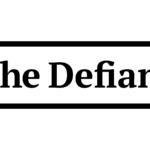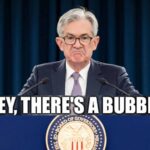In a striking address, Peter Navarro, the White House Senior Counselor for Trade and Manufacturing, lauded President Donald Trump’s recent deal over TikTok, while also voicing concerns regarding the Federal Reserve’s monetary policy. Speaking on “Mornings with Maria,” Navarro criticized the Fed for its decision to maintain interest rates, suggesting that it hinders the American Dream and exacerbates economic challenges for households.
Navarro highlighted that current interest rates are at least a hundred basis points too high, describing this situation as “disequilibrium” that negatively impacts the trade balance and constricts the housing market. He argued fervently that a 50 basis-point cut should have been enacted during the Fed’s latest meeting, advocating for an additional reduction at their next session as well.
On Wednesday, the Federal Reserve announced its first interest rate cut of the year, decreasing rates by 25 basis points to a range of 4% to 4.25%. This announcement came amidst heightened inflation concerns fueled by tariffs and worries about the labor market. Markets had largely anticipated this cut, with projections indicating a 96% chance of a quarter-point reduction.
Experts across political and real estate sectors have expressed hopes for more aggressive cuts. For instance, Senate Banking Committee Chair Tim Scott and Miami agent Joe Azar both echoed Navarro’s sentiments, calling for a reduction of 50 basis points. Azar emphasized that such a cut would significantly boost the real estate market and improve buyer spending power.
While many buyers and sellers have their eyes on potential rate cuts, they are also mindful of other economic indicators, such as the 10-year and 5-year Treasury yields. Azar noted that the Fed’s focus on short-term rate cuts could have particular implications for adjustable-rate mortgage loans.
Senator Scott remarked on the importance of aligning the Federal Reserve’s decisions with the President’s economic vision, stating, “What else does he need? One big thing – I think a lower interest rate.” This sentiment underscores a broader call for accountability within U.S. financial institutions.
Navarro criticized Fed Chairman Jerome Powell’s leadership, labeling the current monetary policy direction as a “disaster.” He asserted that the decisions made by Powell and the Democrats are “partisan” and do not reflect the best interests of the American economy. He reframed critiques of Powell’s performance as concern over “Fed incompetence,” rather than an assault on the autonomy of the central bank.
In light of these developments, there have been discussions within the Trump administration about potentially declaring a national housing emergency, addressing the mounting pressures of elevated interest rates, bureaucratic obstacles, and rising construction costs. Stakeholders from various sectors are closely monitoring these unfolding events, contemplating their implications for the housing market and the broader economy.







